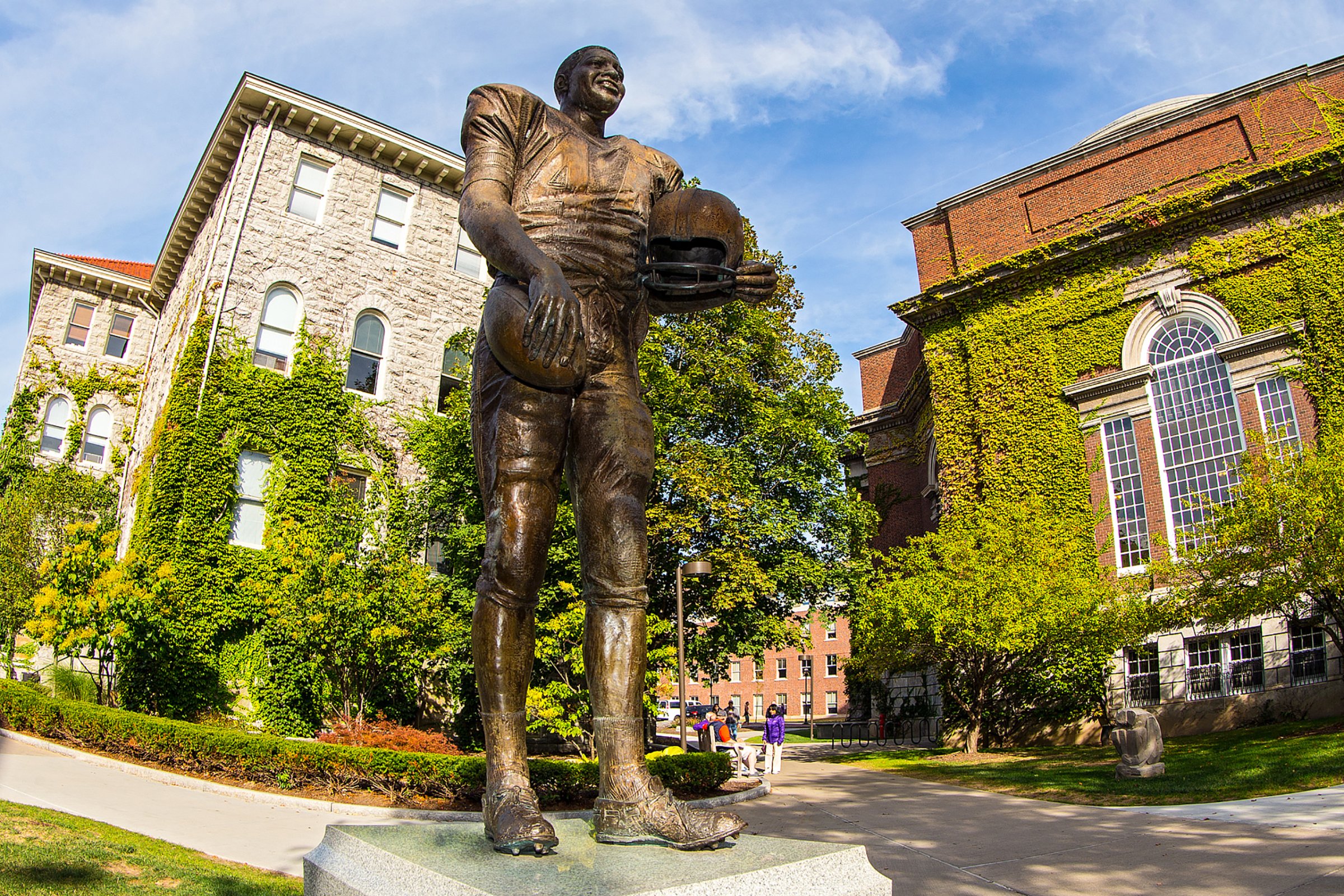
In an era when a professional baseball team team employs a director of decision science, when a football team hires a brainy baseball exec to run its shop, and when an annual gathering sponsored by MIT morphs into one of the most important confabs in all of sports, it was only a matter a time before a college kid could major in sports geekdom.
On Wednesday, Syracuse announced it would become the first U.S. university to offer a bachelor of science degree in sports analytics. Other schools offer concentrations and minors in sports analytics, and Indiana University-Purdue University Indianapolis offers a five-year combined bachelor’s in sports management and masters in sports analytics. But only Syracuse’s program, which is expected to start in fall of 2017, will allow undergrads to earn a sports analytics degree. “We saw market interest, we saw students interest, and decided to connect the dots,” says Syracuse sports economist Rodney Paul, who designed the new curriculum.
Paul was initially concerned that there weren’t enough jobs in the sports industry to justify such a specialized major. But as analytics have become an increasingly important part of high-level sports, the need for math wizards has spread beyond player evaluation departments. There is now appetite for such talent in teams’ increasingly sophisticated marketing, ticketing and game operations groups, and industries with connections to sports — consultancies, financial firms, sponsors — are also looking for overlapping talent.
At Syracuse, students will take classes in mathematics, computer programming, econometrics, and game theory. One required course is called “Price Theory in Sports.” To make students more marketable in, say, the soccer hotbeds of South America, they must study a foreign language. “We’re going to recruit Ivy League caliber students, since no Ivy League program has this kind of concentration in sports analytics,” says Michael Veley, director of Syracuse’s sports management department.
Expect other schools to follow Syracuse’s lead. Sure, not every student can make a career engineering deals at the MLB trade deadline. But plenty will sign up to try. And Veley is betting that the skills learned in an intensive curriculum can transfer to other industries. “The days of people making decisions that aren’t data-driven,” he says, “are over.”
More Must-Reads from TIME
- How Donald Trump Won
- The Best Inventions of 2024
- Why Sleep Is the Key to Living Longer
- Robert Zemeckis Just Wants to Move You
- How to Break 8 Toxic Communication Habits
- Nicola Coughlan Bet on Herself—And Won
- Why Vinegar Is So Good for You
- Meet TIME's Newest Class of Next Generation Leaders
Write to Sean Gregory at sean.gregory@time.com